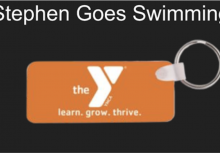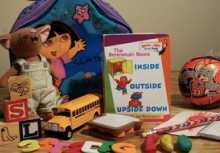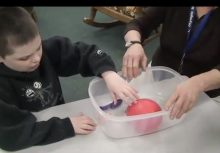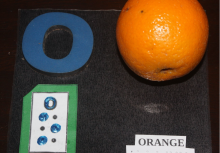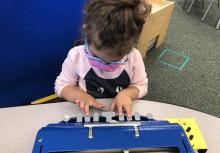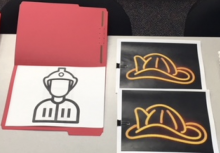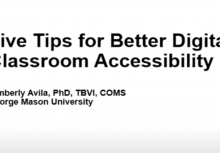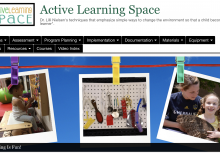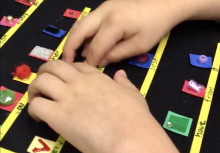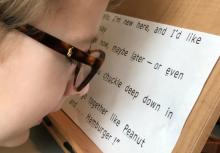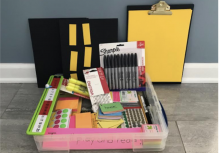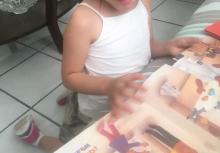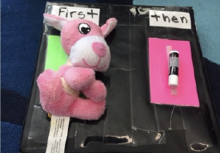So often when people think about making accessible books for children with CVI, they enthusiastically share ideas about removing the background clutter and complexity. They set off to create an accessible book. The trouble is that they stop at removing...
Blog Posts
Below are recently created blog posts.
By Ellen Cadigan Mazel
By Deirdre Leech
By Patricia Weismer and Deirdre Leech
A literacy kit is a set of activities that are designed to allow a student to actively participate and communicate during book reading activities. The primary purpose is to support and enhance the curriculum with math...
By Charlotte Cushman
Our field lost a treasured friend and visionary colleague with the passing of Linda Hagood this month. She has contributed an enormous amount to the field, through her writing, her teaching, and her modeling of innovative techniques. As a speech...
By Liamsmom
I am a mother of two sweet boys. My oldest, Liam, is 6 years old. He is deafblind. My youngest, Finn, is 3 years old. He has typical vision and hearing. I really look forward to the Christmas season. I enjoy finding...
By Chris Montgomery
How do we join the person who is deafblind in sharing their world, a world experienced through touch? How do we arouse curiosity? What is the path to bonding? Why must we recognize and affirm their communication before a formal language can be co-created?...
By Flavia Moreira
Students with visual impairment and multiple disabilities generally need concrete information that favors the understanding of the most diverse concepts and information. They also need literacy support.
Visual impairment and multiple disabilities refer to...
By Charlotte Cushman
Professor Cheryl Kamei-Hannan and a team from CalState LA have created Braille Brain, which is a training program funded by the US Department of Education, Rehabilitation Services Agency. The overall goal of the project is to promote literacy and STEM...
By Beth Borysewicz
Early elementary classrooms in schools all across the United States are learning about FIRE SAFETY this month! Fire Safety from the perspective of a typically sighted child is very different than the perspective of a child without any vision, limited or low...
By KimAvila
Tip 1: Provide actual text, not images of text
Tip 2: Tip 2: The Four C’s
Tip 3: Multimedia, Captioning, Interpreter, and Description
Tip 4: Document and Slide Accessibility
Tip 5: Advocate for...
By Charlotte Cushman
Use a 3D printer to create your own braille playdoh hand-held stampers. Amanda Crayton created files that are free to download the from Thingiverse to make each letter of the English alphabet a-z in braille.
The top of each stamper has the raised dots of...
By Charlotte Cushman
If you are a teacher or parent of a child with complex learning needs or significant multiple disabilities, you may already be familiar with Dr. Lilli Nielsen's Active Learning approach. If not, we invite you to visit our sister website the ...
By Ann Adkins
Background
I first met Aidan in 2014 during an onsite visit to Frenship ISD from the Outreach Program of the Texas School for the Blind and Visually Impaired (TSBVI). His Teacher of Students with Visual Impairment (TVI), Sherry Airhart, had requested a...
By Judy Endicott
“When you’ve met one child with CVI, you’ve met one child with CVI.”
-- Gordon Dutton
While the specifics mentioned below were developed to meet the needs of my grandson in conjunction with his CVI Range assessment (Roman...
By Lisha Yochimowitz
As a TVI working with students with cortical visual impairment, I spend all day making CVI adaptations. While each student is unique, I have developed a tool box for CVI adaptations with some of the basic materials that are helpful for adapting materials for...
By Jacqueline Dettore
Starting as a first year TVI in the middle of a pandemic was not something I anticipated when starting this career. As I began my new position, I wanted to remotely assess students as accurately as possible without requiring assistance from families or...
By Conchita Hernandez
Statistics on English Language Learners in the United States
About 11% of our general education students are English Language Learners (ELL) or bilingual.
TVIs generally do not feel competent in working with this population....
By Chevonne Sutter
First / Then Schedules can be used to help individuals understand what activity they are expected to be engaging in currently and what activity to anticipate next. They are a structured method of communicating about what is happening now and what is going to...
By Marnee Loftin
Tim tries to read a story aloud for his class. He has difficulty with this activity and asks the teacher for help. Once she gives the help, he continues to read. Sara stumbles while reading the same book to classmates. Even after the teacher provides help,...
By Liz Eagan
Letter writing can be a way for students to feel safe asking questions, while working on braille skills in a real world activity. One of my students started corresponding with the speech therapist's dog, which gave him a chance to practice...
By Laurie Hudson
Laurie Hudson (Consultant, Perkins International)
Deborah Gleason (Co-author, and Director Asia & Pacific Region, Perkins International)
This is the second of two parts. You can find Part 1 here.
We at Perkins International (PI) are...

